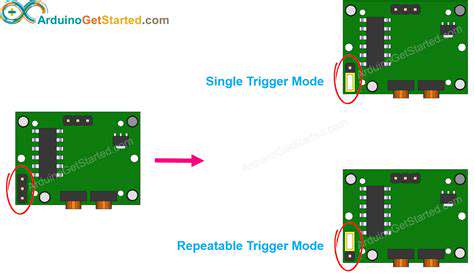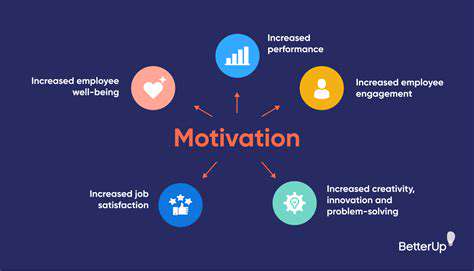How to Create a Healthy Work Life Balance
Optimizing Your Time Management and Productivity
Prioritizing Tasks for Maximum Impact
Effective time management hinges on prioritizing tasks based on their importance and urgency. A simple technique like the Eisenhower Matrix (urgent/important) can significantly improve your focus. Categorizing tasks helps you allocate your energy and time to activities that yield the biggest returns, ensuring you're not wasting valuable hours on less crucial endeavors. This proactive approach to task management prevents you from feeling overwhelmed and allows you to accomplish more in less time, ultimately leading to increased productivity and a better sense of accomplishment.
Understanding your personal productivity peaks and valleys is also key. Are you a morning person who thrives on early starts, or do you find your energy levels surge later in the day? Adapting your schedule to align with these natural rhythms can optimize your work flow and lead to more consistent and higher-quality output. By understanding these patterns, you can structure your day to maximize your productive hours and minimize wasted effort.
Utilizing Time-Blocking Techniques for Structure
Time blocking is a powerful tool for structuring your day and maintaining focus. By allocating specific time slots for different tasks, you create a clear schedule that guides your activities and prevents procrastination. This structured approach helps you stay on track, avoid multitasking, and complete tasks efficiently. It also provides a clear visual representation of your day, allowing you to see how your time is being used and identify potential areas for improvement.
Whether you use a physical planner, a digital calendar, or a simple notepad, the act of scheduling your time helps you avoid the pitfalls of spontaneity and ensures that you dedicate sufficient time to each task, promoting a sense of control and accomplishment.
Minimizing Distractions for Enhanced Focus
In today's hyper-connected world, distractions are everywhere. Identifying and minimizing these distractions is crucial for maximizing focus and productivity. This includes turning off notifications on your phone and computer, creating a dedicated workspace free from interruptions, and using website blockers to prevent you from getting sidetracked by tempting online content.
Establishing clear boundaries between work and personal time can also help minimize distractions. Designate specific spaces and times for work and relaxation to help your brain transition effectively between these states. This helps maintain focus during work hours and allows for a more relaxed and rejuvenating personal time.
Leveraging Technology for Efficiency
Technology offers numerous tools and resources to boost productivity. Project management software, task management apps, and time tracking applications can streamline workflow, improve organization, and provide insights into your work habits. Utilizing these tools allows you to monitor your progress, identify bottlenecks, and make adjustments to enhance efficiency.
Choose apps and tools that align with your work style and preferences. Experiment with different options to find the ones that best suit your needs. By leveraging technology effectively, you can optimize your workflow, improve time management, and achieve higher levels of productivity.
Developing Healthy Work Habits for Long-Term Success
Establishing healthy work habits is essential for maintaining productivity and well-being over the long term. This includes regular breaks, adequate sleep, and a healthy diet. Taking short breaks throughout the workday allows your mind to rest and recharge, preventing burnout and enhancing focus. Sufficient sleep is crucial for cognitive function and optimal performance, so prioritize getting enough rest each night.
A balanced diet provides the energy and nutrients necessary for optimal brain function. Making conscious food choices can significantly impact your energy levels, mood, and overall well-being. Prioritizing these elements creates a positive feedback loop that supports sustained productivity and a healthy work-life balance. By incorporating these healthy habits into your routine, you can create a sustainable foundation for peak performance and long-term success.
Read more about How to Create a Healthy Work Life Balance
Hot Recommendations
-
*Guide to Managing Gout Through Diet
-
*Best Habits for Financial Well being
-
*How to Build a Routine for Better Mental Health
-
*How to Eat Healthy on a Budget [Tips & Meal Ideas]
-
*Guide to Practicing Self Acceptance
-
*How to Incorporate More Movement Into Your Day
-
*Guide to Managing Chronic Pain Naturally
-
*Guide to Building a Reading Habit for Well being
-
*Top 5 Weight Loss Supplements That Actually Work
-
*Best Exercises for Postpartum Recovery [Beyond Abdominal Work]









